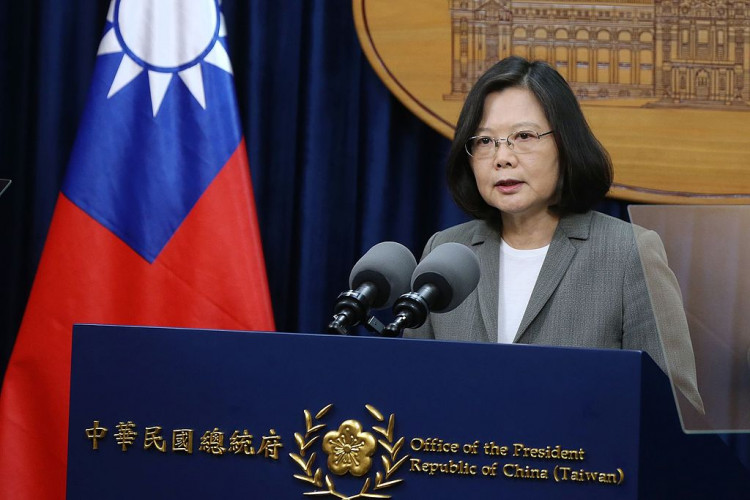Taiwan President Tsai Ing-wen says she is grateful to U.S. President Donald Trump for signing the Taiwan Assurance Act that gives the republic its biggest political win in decades.
The U.S. federal government's appropriations bill for the fiscal year 2021 amounting to $2.3 trillion unexpectedly signed by Trump late Sunday includes both the Taiwan Assurance Act and the Tibetan Policy and Support Act.
The Consolidated Appropriations Act includes the $900 billion COVID-19 pandemic relief package and provides $1.4 trillion to fund the federal government.
Taiwan said Monday it was grateful for the act aimed at deepening relations between the U.S. and Taiwan.
Presidential office spokesman Xavier Chang said Taiwan would continue deepening its partnership with the U.S.
Taiwan's Ministry of Foreign Affairs thanked "the U.S. government and Congress for supporting Taiwan-U.S. relations through concrete actions."
It said the new law included $3 million to support the U.S.-Taiwan Global Cooperation and Training Framework that promotes public health, law enforcement, disaster relief, energy cooperation, women, network security, media literacy and good governance.
The law emphasizes U.S. support for Taiwan's participation in the U.N. and affiliated organizations such as the World Health Assembly, the International Civil Aviation Organization, the International Criminal Police Organization and other international groups.
The act confirms the U.S. government's support for Taiwan's defense and encourages Taiwan to increase defense spending to fend off China. It also calls for the normalization of regular arms sales.
"The U.S. should conduct regular sales and transfers of defense articles to Taiwan in order to enhance its self-defense capabilities - particularly its efforts to develop and integrate asymmetric capabilities, including undersea warfare and air defense capabilities, into its military forces," the law says.
The Tibet act stipulates any China interference in the selection of a successor to the dalai lama will be perceived as a violation of Tibet's religious freedoms. Violations allow the U.S. government to impose economic and visa sanctions on China officials involved.
China can't establish a new consular office in the U.S. until Washington is permitted to establish an office in Tibet's capital Lhasa.
China's foreign affairs spokesman Zhao Lijian said China was "resolutely opposed" to both acts.






